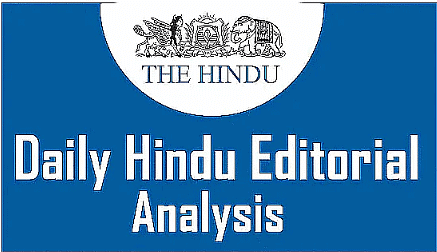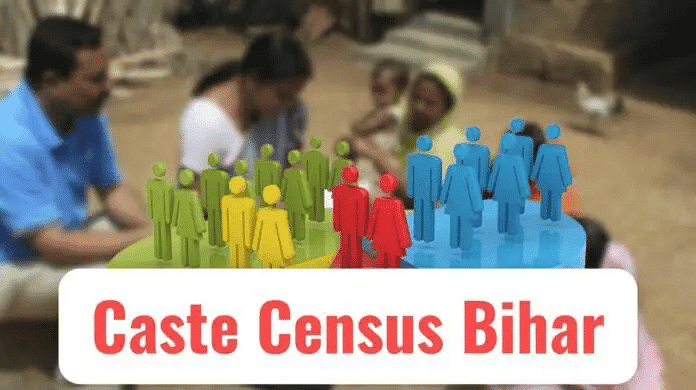UPSC Exam > UPSC Notes > Current Affairs & Hindu Analysis: Daily, Weekly & Monthly > The Hindu Editorial Analysis- 21st October 2023
The Hindu Editorial Analysis- 21st October 2023 | Current Affairs & Hindu Analysis: Daily, Weekly & Monthly - UPSC PDF Download

The politics of a caste census, its impact on secularism
Why in News?
The Bihar government's latest caste survey information has once more emphasized the importance of conducting a caste census. Although the Census of India regularly provides statistics on Scheduled Castes and Scheduled Tribes, it has not yet provided an approximation of the population of Other Backward Classes (OBCs) and other similar communities.
What are Census and Socio Economic and Caste census (SECC)?
- Census in India Origins: The beginning of the Indian census dates back to the colonial period in 1881.
- Census Utilization: The Indian census is a valuable tool used by the government, policymakers, academics, and various stakeholders. Its purposes include population measurement, resource allocation, tracking social changes, and delimitation exercises.
- Critiques of Census: Despite its widespread use, the census has faced criticism for its limited suitability for detailed research.
- SECC Introduction: The Socio-Economic and Caste Census (SECC) was first conducted in 1931. It aimed to gather economic information about Indian families in both rural and urban areas, particularly to identify indicators of deprivation. It also collected data on specific castes to assess the economic conditions of different caste groups.
- Census vs. SECC: The census provides a broad overview of the Indian population, while SECC is primarily used to identify those eligible for government support. Census data is protected under the Census Act of 1948, whereas personal information in SECC is accessible to government departments for the purpose of granting or restricting benefits to households.
- Caste Data History: India has a long history of collecting data related to castes, with this practice continuing until 1931. However, after 1951, the decision was made to discontinue the collection of caste data in an effort to move away from a divisive approach and promote national unity. Despite this, changing socio-political dynamics and the need for accurate information have led to renewed calls for a caste-based census.
What is the Significance of Caste Census?
- Caste Census for Addressing Social Inequality
- Prevalence of Caste-based Discrimination: Caste-based discrimination persists in many parts of India, necessitating a caste census.
- Identifying Disadvantaged Groups: Caste census crucial for identifying disadvantaged groups for targeted policy-making.
- Policy Impact on Marginalized Communities: Understanding caste distribution aids in formulating policies to uplift marginalized communities.
- Equitable Resource Distribution through Caste Census
- Accurate Population Data for OBCs: Lack of accurate data on OBC population hinders equitable resource distribution.
- Insights into Socio-economic Conditions: Caste census provides insights into socio-economic conditions and needs of different caste groups.
- Tailoring Policies for Inclusive Development: Informed policies can be crafted to meet specific requirements, fostering inclusive development.
- Monitoring Affirmative Action Policy Effectiveness
- Evaluating Impact of Reservations: Caste census crucial for evaluating impact and effectiveness of reservations and affirmative action policies.
- Informed Policy Decisions: Enables policymakers to make informed decisions regarding policy continuation and modification.
- Comprehensive Insight into Indian Society
- Integral Role of Caste: Caste deeply ingrained in Indian society, influencing social, economic, and political dynamics.
- Diversity of Indian Society: Caste census provides a comprehensive view of Indian society's diversity and interplay between different caste groups.
- Enhanced Understanding of Social Dynamics: Data contributes to a better understanding of social dynamics.
- Constitutional Mandate for Caste Census
- Article 340 Mandate: Constitution supports a caste census through Article 340, which mandates the appointment of a commission to investigate conditions of socially and educationally backward classes and make recommendations for government action.
What are the Arguments against Caste Census?
- Reinforcement of Caste System
- Critics say a caste census might strengthen the caste-based discrimination and is against the principles of equal rights.
- They emphasize the importance of prioritizing individual rights and equal opportunities over categorizing people by caste.
- Complexity in Defining Castes
- Defining castes is a challenging task due to the vast number of castes and sub-castes in India.
- Skeptics argue that attempting to define castes could result in confusion, disputes, and further societal divisions.
- Increased Social Divisions
- Some contend that a caste census could exacerbate social divisions, advocating for the promotion of social harmony instead.
- They suggest that focusing on shared traits among people rather than highlighting differences is more beneficial for national integration.
What is the Government's Stand on a Caste Census?
- The Government of India in 2021 had stated in Lok Sabha that it has decided as a matter of policy not to enumerate caste-wise population other than SCs and STs in Census.
What is the Role of the Socio-Economic and Caste Census (SECC)?
- In 2011, the SECC (Socio-Economic and Caste Census) aimed to gather extensive data on socio-economic factors and caste details.
- The raw caste data collected in the SECC has not been made available or used effectively, primarily due to concerns about data quality and classification difficulties.
- To address these issues, an Expert Group was established to sort and classify the raw data.
- However, the recommendations made by the Expert Group have not been put into action, and the implementation is still pending.
Way Forward
- Data Collection at Local and State Levels: Conducting separate studies at the district and state levels to gather information about castes and subcastes.
- Preventing Misuse: Ensuring that this data is not misused as a political tool to deepen societal divisions and fuel election-based polarization.
- Preserving Diversity: Safeguarding the idea of representation in a vast and diverse democracy by avoiding the fragmentation and reduction of this concept.
- Utilizing AI and Machine Learning: Leveraging technologies like Artificial Intelligence and Machine Learning for effective data analysis.
- Subcategorizing OBCs: Dividing Other Backward Classes (OBCs) into subcategories to provide representation for those subcastes that have been underrepresented, as recommended in the recent report by Justice Rohini commission.
The document The Hindu Editorial Analysis- 21st October 2023 | Current Affairs & Hindu Analysis: Daily, Weekly & Monthly - UPSC is a part of the UPSC Course Current Affairs & Hindu Analysis: Daily, Weekly & Monthly.
All you need of UPSC at this link: UPSC
|
38 videos|5258 docs|1111 tests
|
FAQs on The Hindu Editorial Analysis- 21st October 2023 - Current Affairs & Hindu Analysis: Daily, Weekly & Monthly - UPSC
| 1. What is a caste census and why is it politically significant? |  |
Ans. A caste census is a survey or enumeration that aims to collect data on the caste composition of a population. It is politically significant because caste plays a crucial role in Indian society and politics. The data collected through a caste census can be used to formulate policies, implement affirmative action measures, and understand the socio-economic conditions of different castes.
| 2. How does a caste census impact secularism in India? |  |
Ans. A caste census can have implications for secularism in India as it highlights the deep-rooted caste divisions and inequalities in society. By collecting data on caste, it brings attention to the unequal distribution of resources and opportunities among different caste groups. This can help in identifying and addressing caste-based discrimination and promoting a more inclusive and egalitarian society.
| 3. What are the potential challenges in conducting a caste census in India? |  |
Ans. Conducting a caste census in India can pose several challenges. Some of these include the sensitivity of the issue, as caste continues to be a highly divisive and sensitive topic in the country. There may also be logistical challenges in accurately identifying and categorizing individuals into their respective castes. Additionally, there may be resistance from certain groups who fear that a caste census could lead to further discrimination or perpetuate caste-based identities.
| 4. How can a caste census contribute to policymaking? |  |
Ans. A caste census can provide policymakers with valuable data on the social, economic, and educational status of different caste groups. This data can help in formulating targeted policies and programs to address the specific needs and challenges faced by marginalized castes. It can also aid in evaluating the effectiveness of existing affirmative action measures and ensuring their implementation reaches the intended beneficiaries.
| 5. Has a caste census been conducted in India before? |  |
Ans. The last time a caste census was conducted in India was in 1931 during British colonial rule. Since then, the collection of caste-based data has been controversial and has not been included in the decennial population census. However, there have been demands from various groups and political parties to conduct a caste census to have updated and accurate data on caste demographics for policy planning and implementation.
Related Searches

















